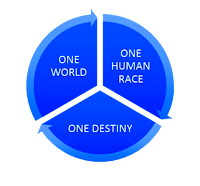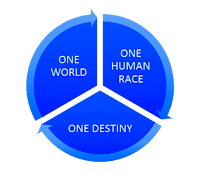THE SOCIAL WORKER. PART 9
Although it can sometimes appear to pedantic, I have found that it is also helpful for the social worker to make time to plan how he/she is going to go about fulfilling each task. By doing so, the worker is provided with the opportunity to become aware of and mentally walk through each stages of the process of completing the task. For example, if the task is to make an home visit, by focusing on why the visit is to be made, the worker should be reminded of the ‘plan’ pertaining to that service-user, the need to have another look at it before making the visit, remind him/herself of what tasks are required of him/her and others, including the service-users’ family, ensure that he/she has the necessary tools and documentation, and so forth.
As I have mentioned elsewhere, the engagement of the service user and their family can be vital for the successful outcome of the intervention. Next to successfully engaging with the service-user and/or their family, is the kind of relationship the social worker establishes and develops with them. If we were to go on assumptions, then I might be tempted to say, it goes without saying that this relationship between the social worker and the family and service-user should be a professional one. However, some social workers find it difficult to maintain professional boundaries in their work with service-users.
They tend to become enmeshed in the problem-solving system, which can sometimes lead the social worker to inappropriately disclose personal information about themselves, to the service-user or others. Such disclosures can sometimes give rise to complaints being made against the social worker, or make it untenable for them to continue to be the service-users’ social worker.
As a rule, I have found it helpful to not refer to adult service-users or their family members by their first names, unless they give me permission to do so. If this permission is not forthcoming or I have only recently been involved with the family, or the relationship is antagonistic, I address the parties by their official titles. I have found that this approach helped me to maintain professional boundaries and to accord appropriate deference and respect for the service-user, in their capacity as adults and the roles they are performing, be that as a parent, grandparent, et al.
As a rule, I have found it helpful to not refer to adult service-users or their family members by their first names, unless they give me permission to do so. If this permission is not forthcoming or I have only recently been involved with the family, or the relationship is antagonistic, I address the parties by their official titles. I have found that this approach helped me to maintain professional boundaries and to accord appropriate deference and respect for the service-user, in their capacity as adults and the roles they are performing, be that as a parent, grandparent, et al.
One of the best way of facilitating this process, is to include a summary of outstanding tasks to be accomplished, in your case recording, after each visit and/or main event pertaining to each of your cases. Having a separate checklist or copy of this summary in your working non-computerised folder, to allow easy access, can also be very helpful. Especially if you are out of the office and/or do not have access to your computerised files.









Comments